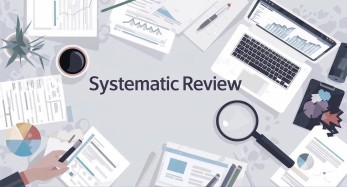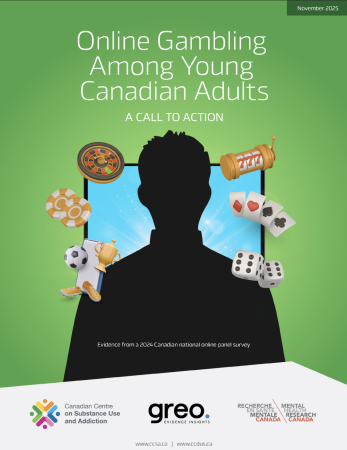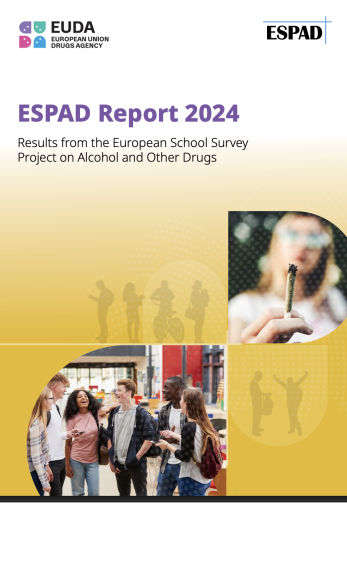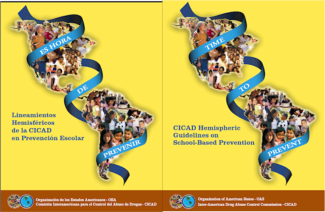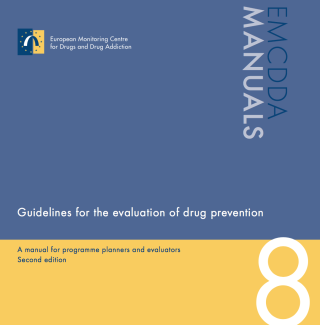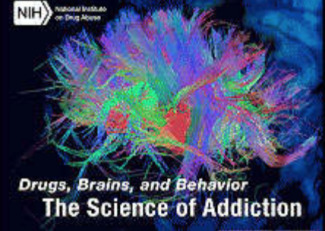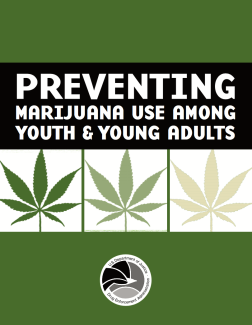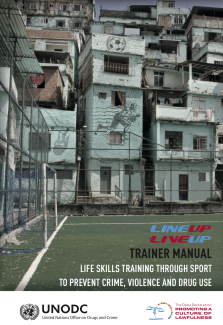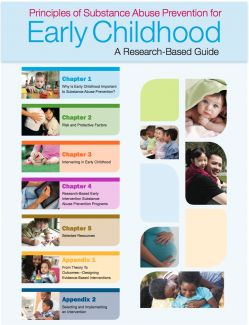Ara
Prevention
Reducing the risk factors and enhancing the protective factors associated with initiating substance use.
CICAD Hemispheric Guidelines on School-Based Prevention
As developed by CICAD's Expert Group on Demand Reduction and approved by the Commission in 2004, these guidelines speak to strategies to conduct research, create educational materials, train teachers, and carry out and evaluate prevention...
Specification of Change Mechanisms in Pregnant Smokers for Malleable Target Identification
Maternal smoking during pregnancy (MSDP) continues to be a leading modifiable risk factor for perinatal complications and a range of neurodevelopmental and cardio-metabolic outcomes across the lifespan. Despite 40 years of intervention...
Lack of Sleep and Substance Use: A Worrying Link
Children and adolescents need more sleep than adults. A good night's sleep for those in their teens is considered to be 8.5 – 9.5 hours. Just over ¼ of US high school students get 8+ hours of sleep a night, according to the 2015 Youth Risk...
Effectiveness of School-Based Smoking Prevention Curricula
Abstract
Objective: To assess effectiveness of school-based smoking prevention curricula keeping children never-smokers.
Design: Systematic review, meta-analysis. Data: MEDLINE (1966+), EMBASE (1974+), Cinahl, PsycINFO (1967+), ERIC (1982...
Cartilha de Direitos Humanos e Juventude
Na última sexta-feira, lançamos o novo volume da nossa série de Cartilhas de Direitos Humanos, no UNISAL - Lorena. Tive a alegria de organizar a referida Cartilha com a Dra. Maria Aparecida Alkimim. Uma realização do Movimento Lorena pela...
Characteristics of Persons Who Inject Drugs and Who Witness Opioid Overdoses in Vietnam
Abstract
Background
Persons who use opioids have a high risk of overdose and associated mortality. In Vietnam, little is known about the characteristics of this population and the persons who are witness to those overdoses. One approach...
The Importance of Nutrition for Recovery from Addiction
How important is nutrition for recovery from Substance Use Disorders (SUDs)?
According to new research published in the academic journal Drug and Alcohol Dependence the answer is: very.
The paper, which looked at the relationship between...
Mobile Technology to Increase HIV/HCV Testing and Overdose Prevention/Response among People Who Inject Drugs
The United States faces dramatically increasing rates of opioid overdose deaths, as well as persistent ongoing problems of undiagnosed HIV and HCV infection. These problems commonly occur together in substance using populations that have...
Energy Drinks, Drug Use and the Developing Brain
New research funded by the National Institute on Drug Abuse (NIDA) has found that university students who regularly consume energy drinks are more likely to develop alcohol use disorders later in life. The same students are also at greater...
Rates and Correlates of Binge Drinking among College Students with Disabilities
Abstract
Objective:
Our objective was to provide the first comprehensive picture of alcohol use and binge drinking by US college students with disabilities (SWDs), who represent at least 11% (1.6 million) of the US college student...
Guidelines for the Evaluation of Drug Prevention: A Manual for Programme Planners and Evaluators
Guidelines for the Evaluation of Drug Prevention: A Manual for Programme Planners and Evaluators is a publication by the European Monitoring Centre for Drugs and Drug Addiction (EMCDDA).
It is the second edition of the 1998 EMCDDA...
Drugs, Brains and Behavior: The Science of Addiction
Since the 1930s, the response to drug addiction has moved from one that focuses on the need to punish users to another that recognises the importance of prevention and treatment approaches.
In other words, thanks to scientific advances...
Synthetic Cannabinoids: What Health Risks Do They Pose?
Cannabis is the most widely used illegal drug in the US and in Europe. Recently, a range of new substances that have similar effects have become available. These are known as synthetic cannabinoids (SCs). Little is known about the risks...
Why Are Many American Adults Misusing Prescription Painkillers?
Prescription painkillers are second only to marijuana as the United States drug of choice. Around 91.8 million Americans aged 18 and above used prescription painkillers in 2014, according to the 2015 National Survey on Drug Use and Health...
Preventing Marijuana Use among Youth and Young Adults
Preventing Marijuana Use among Youth and Young Adults is a new release from the US Department of Justice Drug Enforcement Administration (DEA).
It provides the latest facts about marijuana use in the United States and includes information...
¿Es posible una lucha real?
Geraldine González Willim es experta en la prevención y el tratamiento de adicciones de drogas legales o ilegales. En esta entrevista, detalla sobre los planes de acción aplicables al Paraguay para luchar contra un flagelo que cada día...
Line Up Live Up Trainer Manual: Preventing Drug Use by Promoting Active Lifestyles
Line Up Live Up is a new United Nations Office on Drugs and Crime (UNODC) Trainer Manual prepared by Peer van der Kreeft of HoGent University College Ghent’s Department for Education, Health and Social Work.
It looks to promote sport and...
Alcohol Screening and Brief Intervention: A Potential Role in Cancer Prevention for Young Adults
Excessive or risky alcohol use is a preventable cause of significant morbidity and mortality in the U.S. and worldwide. Alcohol use is a common preventable cancer risk factor among young adults; it is associated with increased risk of...
EMCDDA Insights: Prevention of Substance Abuse
Prevention of Substance Abuse by the European Monitoring Centre for Drugs and Drug Addiction (EMCDDA) is a report that draws on evidence-based research to assess substance use prevention interventions, in terms of their ability to...
Principles of Substance Abuse Prevention for Early Childhood
The National Institute on Drug Abuse’s (NIDA) Principles of Substance Abuse Prevention for Early Childhood (2017) is a special volume that supplements the organisation’s Preventing Drug Abuse Among Children and Adolescents, released in 2003...
Share the Knowledge: ISSUP members can post in the Knowledge Share – Sign in or become a member
